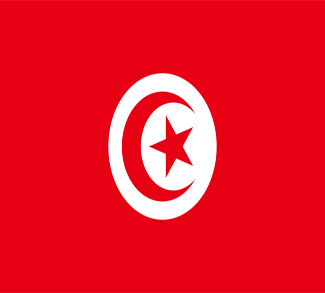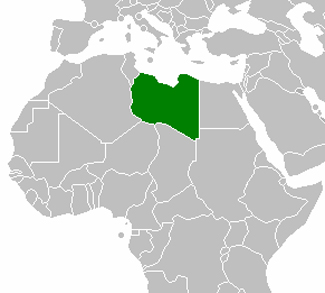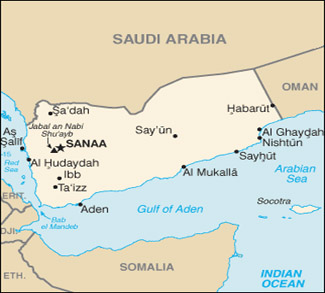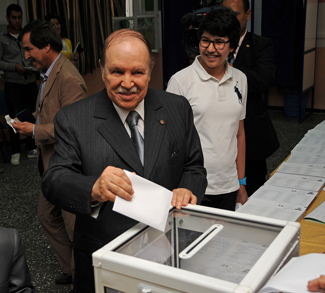When the Tunisian uprisings of late 2010 brought about the removal of longtime President el Abidine Ben Ali, the Arab Spring had officially begun, and over the next two years, it would go on to re-draw the political map of northern Africa and the Middle East. The mainstream media portrayed these events in simple dichotomies: it started and then it finished, leaving good democracy where once there was bad repression. But just as this week’s political assassination in Tunisia shows us, the truth is never so simple.
Wednesday marked a turning point in Tunisia’s post-Arab Spring political development. Chokri Belaid, a secular opposition politician who had reportedly been receiving death threats for the past few months, was gunned down outside of his houses by unknown assailants. Belaid was known for being an outspoken critic of the Islamization of Tunisian society, which drew the ire of Tunisia’s ruling Ennahda Party, an Islamist party that is roughly analogous to Egypt’s Muslim Brotherhood insofar that it owes its political rehabilitation to the Arab Spring.
That such a prominent voice in the opposition movement should be gunned down in the streets of Tunis does not bode well for political stability in Tunisia. Many secularists have already pointed the finger at Ennahda, even though it was far more likely that the more hardline Salafists were behind the assassination. However, there may be some level of overlap between the two Islamist organizations, if not in the form of active cooperation than possibly some willful ignorance on the part of Ennahda. Such was the accusation made by Chokri Belaid right before he was killed. He believed that Ennahda had been turning a blind eye on increasingly violent Salafist attacks on liquor stores and Sufi shrines.
The assassination has triggered protests across the country, with Tunis and Gafsa reporting the largest turnouts, and there have been calls for a general strike to take place on Friday. There are also unconfirmed reports that the regional headquarters of Ennahda was burnt down in the town of Siliana in the north.
Interestingly, we have also seen evidence that the Ennahda establishment is split on what to do about the deepening crisis. In the immediate wake of the assassination, Prime Minister Hamadi Jebali called for the assembly of a temporary unity government staffed by technocrats with no political affiliation. His party was quick to throw him under the bus, as Ennahda’s vice president issued a statement declaring, “[the prime minister] did not ask the opinion of his party… [Ennahda] believes that Tunisia needs a political government right now.”
Unfortunately, it is highly unlikely that this week’s assassination will be the last. While Tunisia has thus far been able to avoid some of the more overt clashes between liberal secularism and Islamism that are currently being witnessed in Egypt, it is by no means “out of the woods” yet. In fact, the country’s situation is arguably more combustible than it ever was. Many of the structural economic problems that provided the impetus for the Arab Spring still exist, and as more time passes, the government is less able to blame these problems on the massively unpopular el-Abidine Ben Ali government that preceded it.
Historically speaking, the next step in a post-revolution society is for the various parties to try and snatch the mantle of the Revolution and brandish it in such a way as to de-legitimize their foes. According to various reports out of Tunisia, this has already started to occur. Islamists have reportedly been setting up neighbourhood committees across Tunisia in order to “defend the revolution” from those, presumably secularists, who would betray it. These committees have occasionally included Ennahda members, and this looks, at least from afar, like more evidence of a “gray area” of overlap between mainstream and hardline Islam in Tunisia.
For Tunisia’s fragile democracy to descend into a bloody street fight for political power is unfortunately not without its historical precedents. In Algeria during the 1990s, tens of thousands of politicians, teachers, and journalists were assassinated over a period of ten years. For a more contemporary example, one needs look no further than the worsening political situation in Egypt, another recent graduate of the Arab Spring. This week, an Egyptian cleric issued a fatwa announcing that all opponents of President Morsi should be killed, specifically Mohamed ElBaradei, the Nobel Peace Prize laureate and leader of Egypt’s largest secular opposition bloc.
While the next few weeks will be critical for identifying the extent of the problem, Tunisia is by all accounts a long way from political stability. It seems that there are still many pages of the Arab Spring that have yet to be written.




